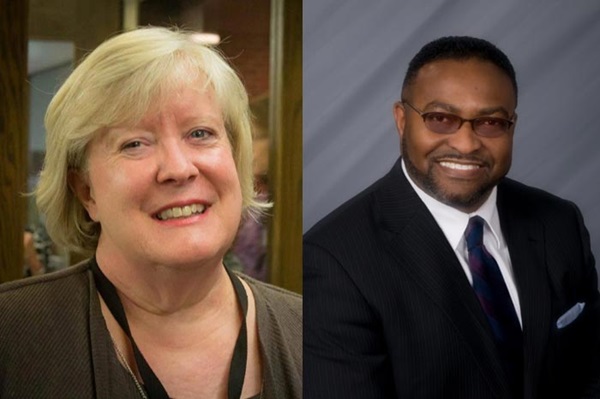God uses strong verbs in Micah 6:8 to talk about what is required of the faithful: DO justice, LOVE mercy and WALK humbly.
The United Methodist General Board of Church and Society exists to help United Methodists know how to do that. When it comes to working for laws that align with church teaching found in the Social Principles, staff not only seek justice, they bring others to walk with them.
Kara Gotsch, Church and Society's director of advocacy with the Interfaith Criminal Justice Coalition, worked with clergy in Iowa to make inroads toward the creation of Senate Bill 2123 on prison sentencing reform.
This bill permits a court to reduce the mandatory minimum prison term imposed on certain non-violent defendants convicted of a high-level first time or low-level repeat drug offense.
It also expands "safety valve" eligibility to permit a court to impose a sentence below the mandatory minimum non-violent, cooperative drug defendants with a limited criminal history.
It also reduces the enhanced mandatory minimum prison term for certain defendants who commit a high-level repeat drug offense, use a firearm in a crime of violence or drug offense after a prior conviction for such offense, or unlawfully possess a firearm after three or more prior convictions. It permits retroactive application of such reductions, after a court considers certain factors.
Gotsch and other staff helped a group of 130 clergy in Iowa to draft a letter to send to Senator Chuck Grassley of Iowa, telling him why they believed this bill was important and asking for his support. The letter also drew media attention.
Although Grassley did not agree with the letter in the beginning "..the collective voice of so many ministers from across the state of Iowa made Sen. Grassley reconsider his stand on sentencing reform," said Funchess.
"I think it really mattered to Grassley that 130 ministers signed this letter asking for him to present this bill on sentencing reform," she said. "Ministers influence a lot of people, and that means something to a politician."
Funchess also credits the Church and Society staff – and Gotsch in particular – with securing a meeting with Grassley's staff for the clergy group. That meeting was key, he says.
Several weeks after this meeting, Funchess talked directly with the Grassley by phone and asked him to make a concentrated effort to get the bill on the floor for a vote.
"For Grassley to see the light and acknowledge the status quo needed to be changed was huge," Schott notes, "Grassley's bill has bipartisan support, so there is no conservative or liberal agenda."
Polly House, freelance writer based in Nashville, Tennessee.
One of seven apportioned giving opportunities of The United Methodist Church, the World Service Fund is the financial lifeline to a long list of Christian mission and ministry throughout the denomination. Please encourage your leaders and congregations to support the World Service Fund apportionment at 100 percent.





